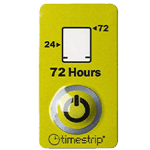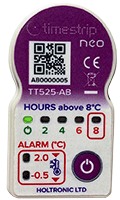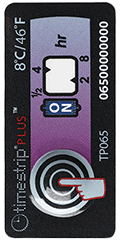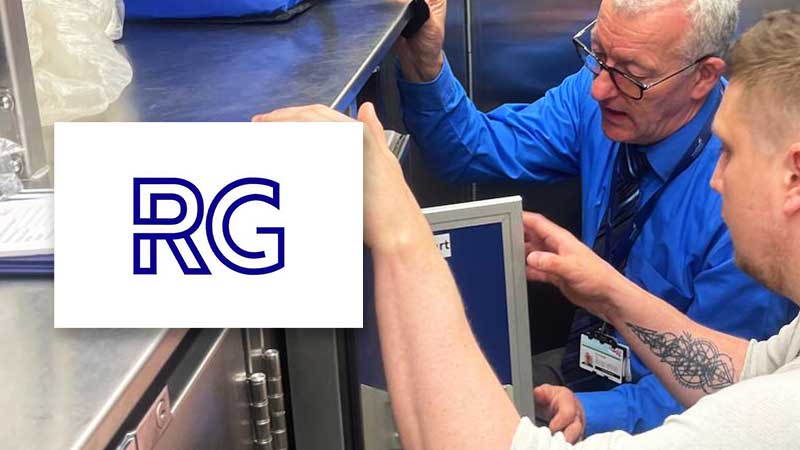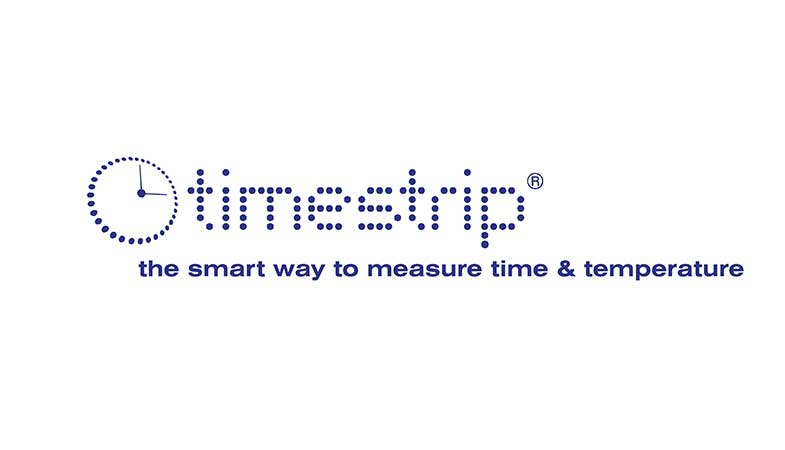
Monitoring the Canine Vaccine Cold Chain in the Field
Abstract: The World Health Organisation stresses the importance of maintaining the cold chain for temperature sensitive vaccines. Due to the recommendation for rabies vaccines to be stored between 2° and 8° Celsius and the nature of canine mass vaccination projects, cold chain maintenance remains one of the most significant logistical hurdles project managers have to overcome.
Mission Rabies field teams in Malawi evaluated the use of adhesive temperature monitors as an alternative to thermometers in both storage fridges and field cooler boxes during the duration of a 4 week mass vaccination drive in April/May 2016.
Two different Timestrip® temperature monitors were used to alert the teams to the critical temperature thresholds of 0°C and 30°C. As freezing rapidly damages vaccines, each vaccine box containing 10 vials of 10ml vaccine was marked with a monitor that indicates the immediate crossing of the lower threshold through colour change. As damage from high temperatures is related to both the temperature achieved and the time of exposure, to test for the upper temperature limit each cooler box was equipped with a monitor that showed the crossing of the upper threshold over time.
Of a total of 22 vaccination teams participating in the study, 7 teams reported an exposure of the vaccines to temperatures above 30°C for more than 4 hours and on 9 occasions teams reported a temperature drop to 0°C or below.
These findings highlight the importance of monitoring the temperature during field campaigns, both due to proximity to ice packs and exposure to high outside temperatures. The use of Timestrip temperature indicators gives early visual clues and raises awareness among the team. However practicability of the temperature monitoring must be taken into consideration and adhesive monitors need to be improved with regards to their setup to make them a valuable tool in field projects.
This abstract was presented at the 28th Annual Rabies in The Americas Conference on 23 October 2017.
Authors: Frederic Lohr, Reuben Isbitsky, Andy Gibson, Alasdair King

